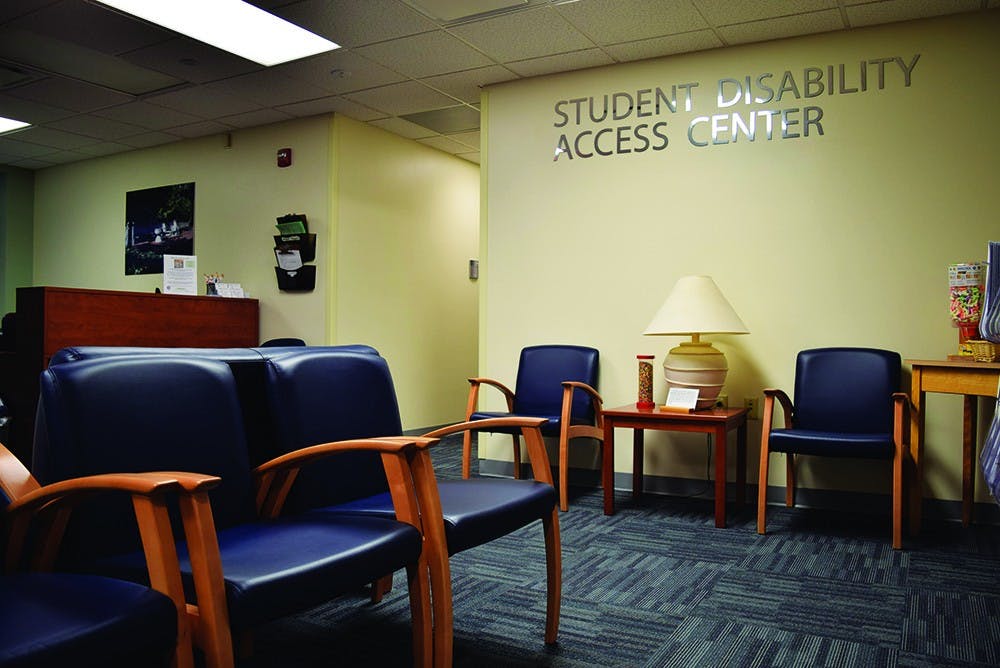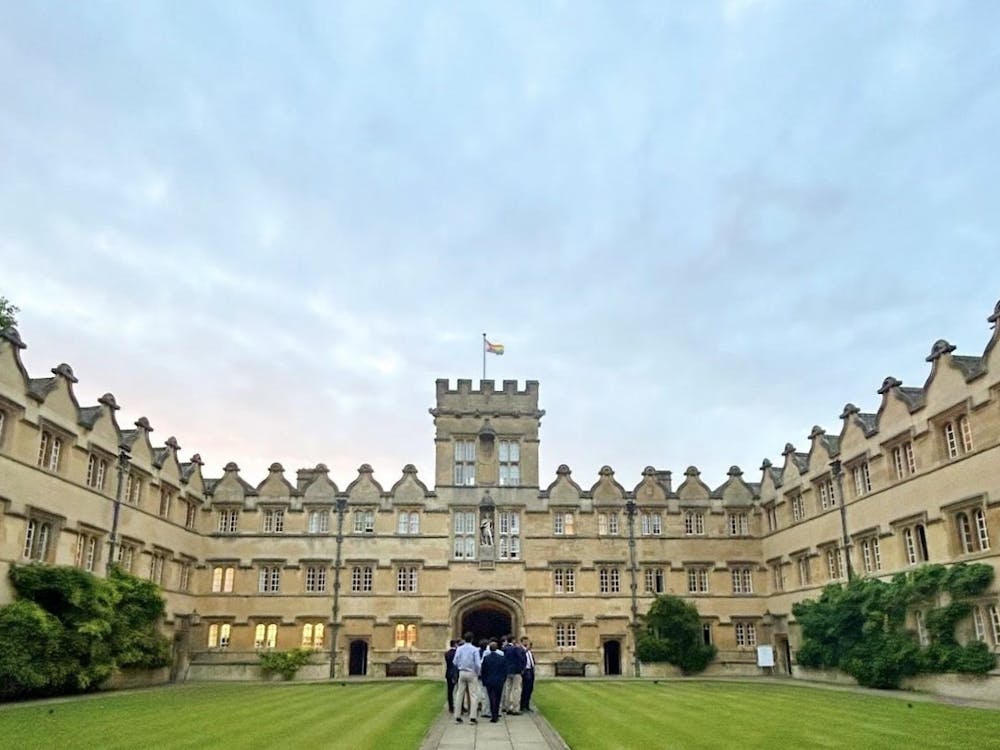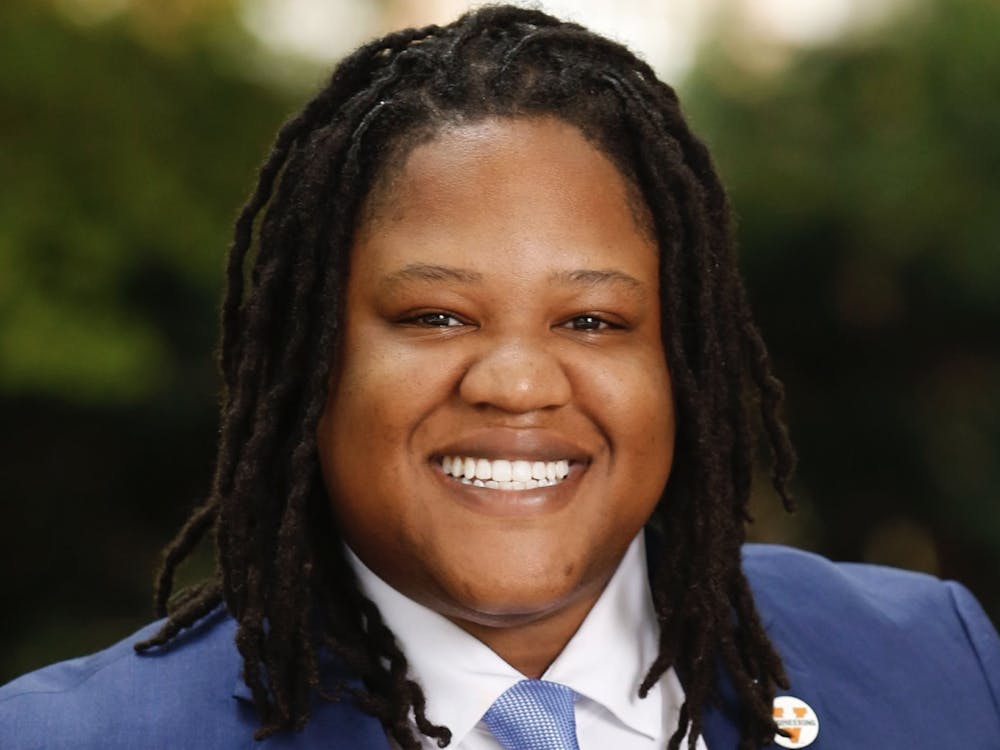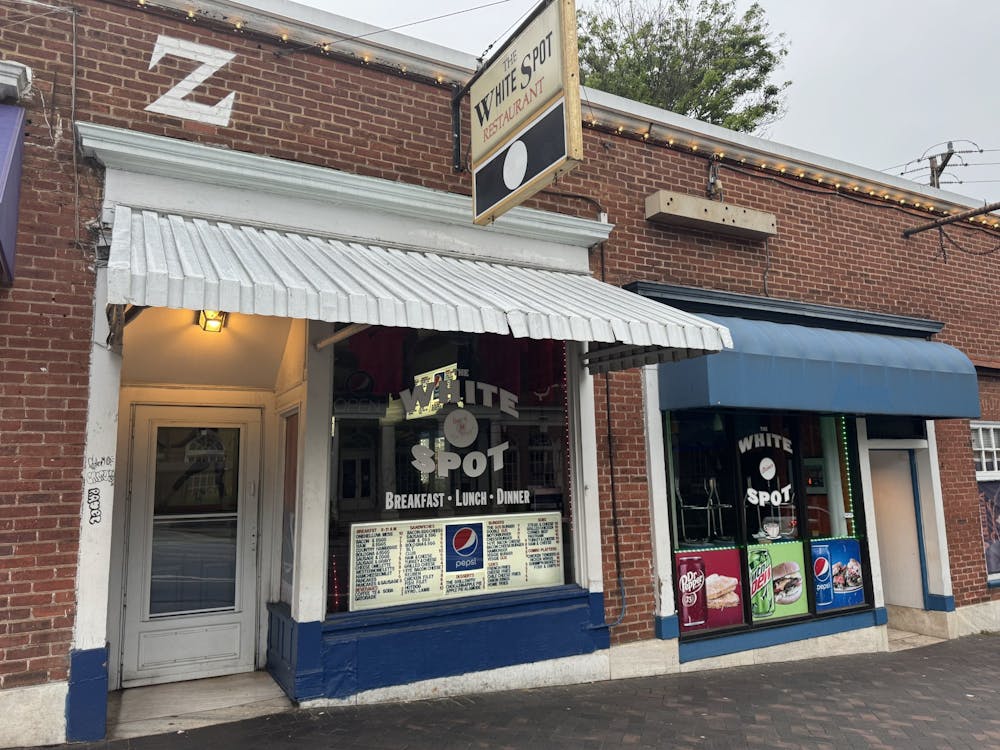Nestled underneath the Student Health Center is a newly renovated Student Disability Access Center — a place full of people who work every day to make sure all students, regardless of disability, have the opportunity to succeed at the University.
Formerly known as the Learning Needs Evaluation Center the SDAC provides a range of services for any students with a diagnosed condition which limits his or her ability to perform academically or otherwise. The organization addresses both temporary and permanent impairments, from a broken arm which limits note-taking ability, to severe visual impairment and hearing loss.
The staff of SDAC works to arrange accommodations such as American Sign Language interpretation, captioning technology, the peer-note taking program, extended time for testing, working with Housing and Residence Life to make alternate living arrangements and more. For example, the SDAC is currently working with U.Va. Dining to provide a successful dining hall experience to first-year students with severe allergies.
Fourth-year College student Kristina Whitener was referred to SDAC by CAPS her third year after she was diagnosed with Obsessive Compulsive Disorder, and recalls being welcomed into SDAC with open arms.
“[The SDAC assistant director] took me back into her office and asked me what was going on and was very comforting, supporting, and [she] was very understanding,” Whitener said. “It wasn’t a somebody-looking-at-you-and-judging-you type of thing.”
When students like Whitener go to SDAC to arrange accommodations, staff members present various possibilities and allow students to choose the services they need.
“They trust you, just like you trust them,” Whitener said. “So if they are going to give you these accommodations, you trust them to do it and they trust you to know what you need.”
The center offers “no-strings attached” consultations for students who are unsure of their needs, generally in the form of conversations with a SDAC representative which the student can walk away from at anytime. Sometimes these result in tips regarding organization or time management, and other times they result in deferral until there is an official diagnosis. For Whitener, it was determined she would benefit from receiving time-and-a-quarter on tests.
“I left just with this huge relief, and after my first exam, my grade went from a C to an A,” Whitener said, “And you know, [the SDAC] did that for me. They made that possible.”
During exams, the SDAC staff is sometimes there from 8 a.m. to 9 p.m. or even later, because a part of their new center includes a room full of desks for students who have made arrangements for extended-time test taking.
“Every single person, with no exception, is deeply committed to what we do and is very enthusiastic about our work — … it kind of hooks you,” SDAC Director Dr. Robert Diamond said. “People really enjoy working here.”
Whitener said she doesn’t think the SDAC staff gets enough credit for what they do.
“I think really the bottom line is that our students are U.Va. students,” Diamond said. “They’ve passed the same rigorous admissions requirements as everyone else. They’ve got all the same stresses plus they’ve got the stress of working the disability into things.”
Diamond says his favorite part of his job is working with students who display willingness to listen to suggestions and work to improve.
“I love meeting with and talking to people who are eager to learn, who are open to ideas, who are willing to change,” he said. “The students want to be here, they want to work and they are motivated to solve the problem, so they’ll try suggestions.”
The SDAC continuously seeks students to participate in their peer-note taking program, through which peers distribute class notes to students who are unable to annotate for various reasons. In the past, SDAC has also had volunteers scan books to be converted to audio.
Students who wish to contact SDAC for potential accommodations can visit them beneath student health, call them at 434-243-5180 or e-mail them at SDAC@virginia.edu.





